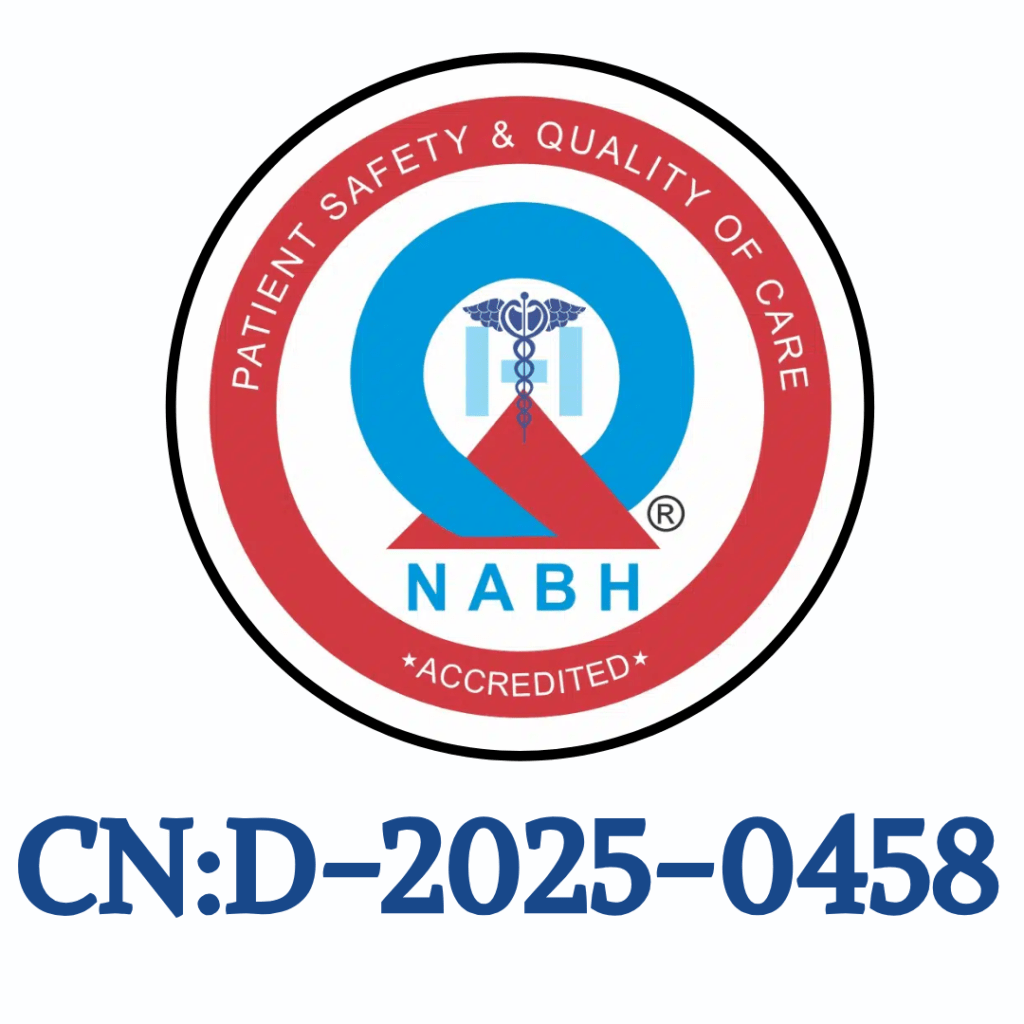WHAT IS APICECTOMY?
Apicectomy, also known as root-end resection or root-end surgery, is a surgical procedure performed to remove the tip of a tooth’s root, along with any infected tissue surrounding it. It’s typically recommended when a root canal treatment fails to eliminate infection or when infection persists despite conventional treatment methods. The procedure is aimed at preventing the spread of infection, preserving the tooth, and maintaining overall oral health.
WHEN IS APICECTOMY NECESSARY?
Apicectomy becomes necessary when the infection in the tooth’s root persists or recurs despite undergoing root canal therapy. Common reasons for persistent infection include complex root canal anatomy, presence of accessory canals, or incomplete removal of infected tissue during initial treatment. Additionally, factors such as tooth fractures or extensive decay may also warrant apicectomy to effectively address the underlying issue.
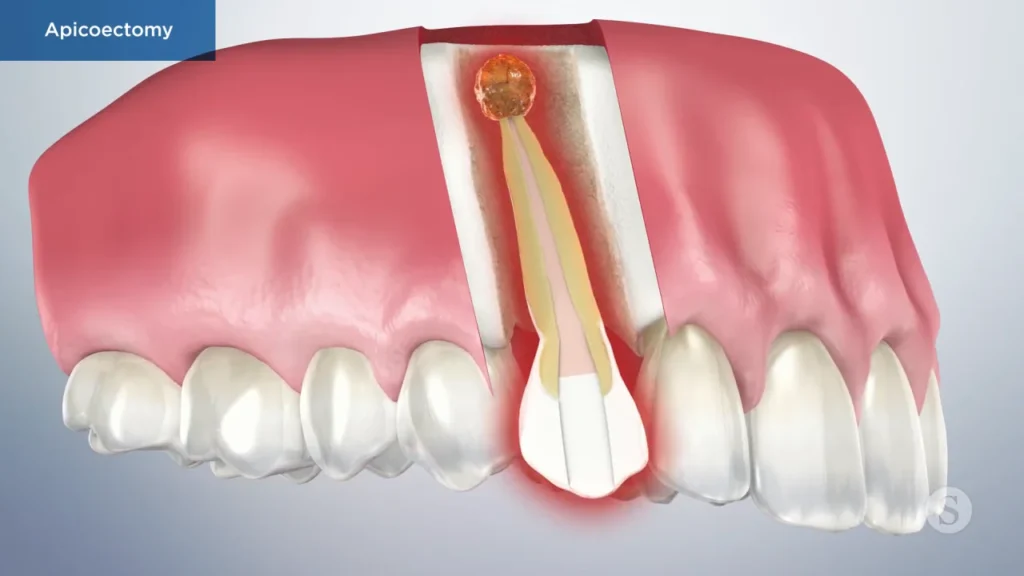
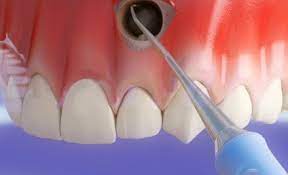
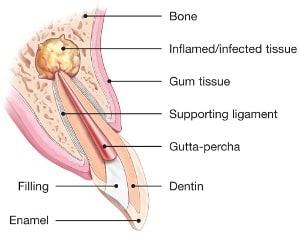
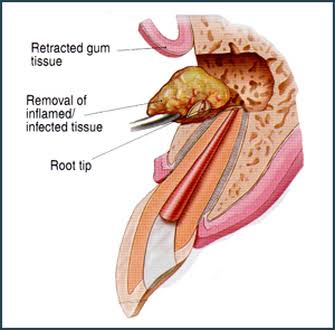
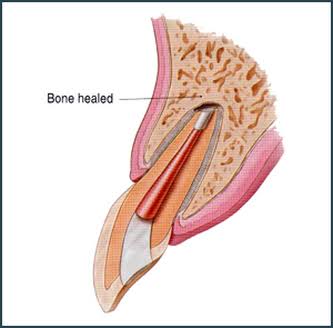
|THE APICECTOMY PROCEDURE:
- Pre-operative Assessment: Before the procedure, your dentist or endodontist will conduct a thorough examination, which may include diagnostic imaging such as X-rays or CBCT scans to assess the extent of infection and determine the most appropriate course of action.
- Anesthesia: Local anesthesia is administered to ensure the area around the affected tooth is numb and you remain comfortable throughout the procedure.
- Accessing the Tooth: A small incision is made in the gum tissue near the tip of the tooth’s root to expose the underlying bone and root structure.
- Root-end Resection: The tip of the root, along with any infected tissue or debris, is carefully removed using specialized instruments.
- Cleaning and Sealing: The root canal is thoroughly cleaned and disinfected, and a biocompatible material is used to seal the end of the root to prevent further infection.
- Suturing: The incision in the gum tissue is closed with sutures to facilitate proper healing.
| RECOVERY AND AFTERCARE:
Following apicectomy, it’s normal to experience some discomfort, swelling, and minor bleeding, which can be managed with over-the-counter pain medications and cold compresses.
Specific post-operative instructions will be provided to you by your dentist, which may include:
- Avoiding strenuous activities and sticking to a soft diet for the first few days.
- Practicing good oral hygiene, including gentle brushing and rinsing with an antimicrobial mouthwash.
- Attending follow-up appointments to monitor healing and remove sutures, if necessary.
| POST-PLACEMENT CARE:
- Oral Hygiene Education:Instruct the patient on proper oral hygiene practices, including regular brushing, flossing, and dental check-ups.
- Follow-Up Appointments:Schedule follow-up appointments to monitor the bridge or crown’s stability and address any concerns.
- Maintenance:Emphasize the importance of maintaining good oral health to ensure the longevity of the bridge or crown.
It’s crucial to note that these steps may vary slightly depending on the specific case and the dentist’s preferred techniques. Regular dental check-ups are essential to monitor the condition of dental restorations and address any issues promptly.
| CONCLUSION:
Apicectomy is a valuable treatment option for preserving a tooth that would otherwise require extraction due to persistent infection. By understanding the procedure and following post-operative instructions, patients can promote optimal healing and maintain their oral health in the long run. If you’re experiencing symptoms of a persistent tooth infection or have been advised to undergo apicectomy, don’t hesitate to consult with your dental professional to explore your treatment options and address any concerns you may have. Remember, proactive dental care is key to a healthy smile!
FAQ
Most frequent questions and answers
You may feel some discomfort during a biopsy, but your doctor will use numbing medication to minimize pain.
Biopsy results typically take a few days to a week, depending on the type of biopsy and the lab’s workload.
After a biopsy, you may need to rest and avoid strenuous activity for a short time. Your doctor will provide specific instructions based on your situation.


